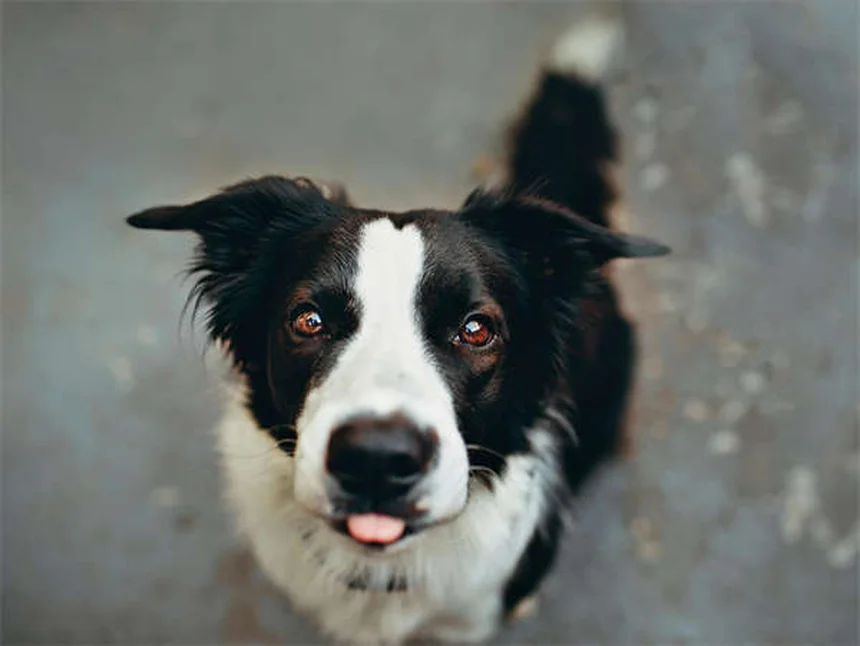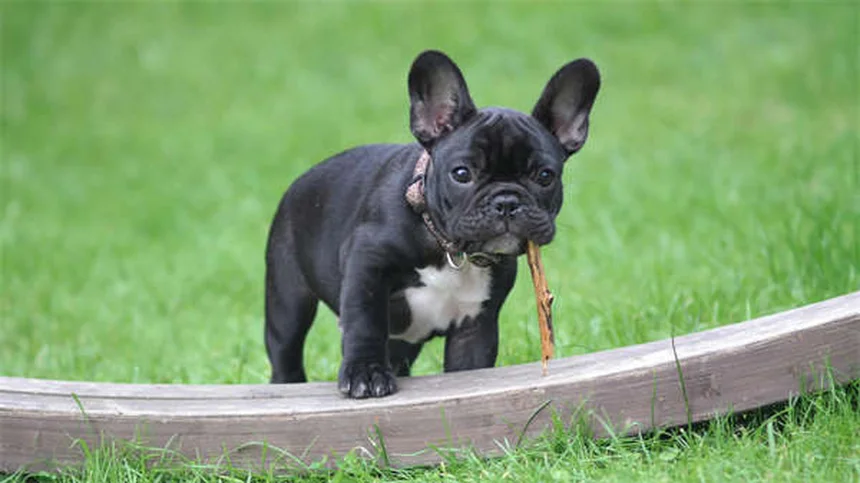Advertisement
Did your rabbit eat rat poison? The answer is: This is a life-threatening emergency requiring immediate vet care! When bunnies ingest rodenticides, their blood loses clotting ability - we call this coagulopathy. I've seen too many cases where delayed treatment led to tragic outcomes. But here's the good news: with quick action, many rabbits fully recover!As an experienced rabbit owner, I can't stress enough how critical those first 24 hours are. My neighbor's rabbit Thumper survived poisoning because we recognized the symptoms early: sluggish movement, pink-tinged urine, and labored breathing. Your quick response could make all the difference! In this guide, we'll walk through exactly what to do if this nightmare happens to your furry friend.
E.g. :5 Warning Signs of Founder in Horses You Can't Ignore
Advertisement
- 1、When Your Bunny Accidentally Eats Rat Poison
- 2、Understanding Rabbit Metabolism
- 3、Hidden Dangers in Your Home
- 4、Emergency Preparedness
- 5、Beyond Traditional Treatment
- 6、Psychological Aspects of Recovery
- 7、Community Resources and Support
- 8、FAQs
When Your Bunny Accidentally Eats Rat Poison
What Happens Inside Their Tiny Bodies
Picture this: your fluffy friend nibbles on some rat poison. Big trouble! Their blood suddenly can't clot properly - we call this coagulopathy. It's like their internal "band-aid" system stops working. Spring and fall are peak danger seasons because that's when people use more rodent killers.
Outdoor bunnies and free-roam house rabbits face higher risks. Why? They're curious explorers! My neighbor's rabbit, Thumper, once chewed through a poison box left in the garage. That emergency vet visit taught us all a lesson.
Spotting the Warning Signs
Here's the scary part - symptoms might not show up immediately. It's like a silent time bomb ticking inside your pet. Watch for these red flags:
- Labored breathing (like they just ran a marathon)
- Pink or red pee (not normal bunny colors!)
- Moving slower than usual (bunnies should bounce!)
- Pale gums (should be nice and pink)
Did you know some poisons work differently? Check out this comparison:
| Poison Type | Danger Level | Common Brands |
|---|---|---|
| Warfarin | Medium | D-Con, Rodex |
| Brodifacoum | Extreme | Tomcat, Havoc |
 Photos provided by pixabay
Photos provided by pixabay
Why This Happens to Our Fluffy Friends
Ever wonder why rat poison affects bunnies so badly? It's all about their unique metabolism. These poisons contain nasty stuff like brodifacoum that mess with vitamin K - the clotting vitamin. Here's a fun fact: repeated small doses are actually worse than one big dose!
Imagine your rabbit sneaking poison bits daily versus one accidental bite. The daily nibbler's in deeper trouble because the poison builds up in their system.
Getting the Right Diagnosis
If you suspect poisoning, vets don't just guess - they run tests! Blood work tells them exactly what's happening inside. They might check:
- Clotting time (how fast blood thickens)
- Liver function (the body's detox center)
- Urine analysis (what's coming out tells what's inside)
Pro tip: Always bring the poison packaging to the vet. It's like giving them the enemy's battle plan!
Emergency Treatment Options
Time is everything! Within 24-48 hours, activated charcoal can help absorb the poison. Think of it as a microscopic sponge soaking up the bad stuff.
Serious cases might need hospitalization. I'll never forget when Thumper needed a blood transfusion. The vet said it was touch-and-go for a while. That's why quick action matters so much!
 Photos provided by pixabay
Photos provided by pixabay
Why This Happens to Our Fluffy Friends
After treatment, your bunny becomes a temporary couch potato. No zoomies allowed! Why? Because movement could cause internal bleeding. You'll need to:
- Keep their cage extra clean
- Monitor food intake closely
- Give vitamin K supplements (the clotting helper)
Remember, recovery takes patience. Thumper needed six weeks of quiet time before returning to his mischievous self.
Prevention Is Better Than Treatment
Here's a question: Why risk it when prevention is so simple? Store poisons in locked cabinets high up. Better yet, use pet-safe alternatives like peppermint oil for rodent control.
Another smart move? Bunny-proof your home like you would for a toddler. They're equally curious and equally likely to get into trouble!
Creating a Safe Environment
Let's talk bunny-proofing 101. You wouldn't leave chocolate where kids can reach it, right? Same logic applies:
- Use childproof locks on cabinets
- Choose pet-safe pest control
- Supervise outdoor playtime
One client used a brilliant trick - they put poison stations inside PVC pipes with small holes. Rodents could enter, but their giant Flemish rabbit couldn't!
 Photos provided by pixabay
Photos provided by pixabay
Why This Happens to Our Fluffy Friends
Not all rat poisons work the same way. Some attack the nervous system, others prevent blood clotting. The anticoagulant types (like warfarin) are particularly dangerous because their effects are delayed.
Here's something scary: many second-generation poisons only need one feeding to be lethal. That's why prevention is absolutely crucial.
What to Do in an Emergency
Found your rabbit chewing poison? Don't panic, but act fast! Here's your game plan:
- Remove any remaining poison
- Note the time of ingestion
- Call your vet immediately
- Bring the poison packaging
Remember that question about why quick action matters? Here's why: the faster treatment begins, the better the chances of full recovery. Every minute counts when dealing with toxins.
Long-Term Health Monitoring
Even after recovery, your bunny needs special attention. Schedule follow-up visits to check liver function and blood values. Some poisons can cause lasting damage that only shows up later.
Watch for subtle changes in behavior or appetite. Thumper's owner noticed he drank more water for months afterward - a sign his kidneys were working overtime.
Alternative Pest Control Methods
Who says you need poison to control rodents? Try these pet-friendly options:
- Ultrasonic repellents (annoying to mice, silent to bunnies)
- Essential oil deterrents (peppermint works great)
- Live traps (catch and release far away)
My favorite solution? Adopt a rat-hunting cat! Just kidding - that would stress your rabbit. But seriously, there are always safer alternatives.
Educating the Whole Family
Poison prevention takes teamwork. Make sure everyone in your household understands the risks. Teach kids that bunny-proofing matters as much as child-proofing.
Create simple rules like "no pest products below counter height" and "always check before letting bunny explore new areas." Consistency protects your furry family member.
Travel Safety Considerations
Taking your rabbit on vacation? Scout for hazards! Many vacation rentals use pest control products. Ask about poison placement before unpacking.
Carry a portable playpen for safe exploration. I've seen too many "my rabbit ate something bad at grandma's" emergencies. A little preparation prevents heartache.
Building a First-Aid Kit
Every rabbit owner should have emergency supplies ready. Your kit should include:
- Activated charcoal (vet-approved dosage)
- Emergency vet contacts
- Pet carrier (always ready to go)
- List of toxic substances
Store it somewhere accessible but out of bunny's reach. Update it regularly - expired charcoal won't help in a crisis!
Understanding Rabbit Metabolism
How Rabbits Process Toxins Differently
You might not realize this, but rabbits have a super sensitive digestive system compared to other pets. Their gut bacteria balance can get thrown off by the smallest things. When poison enters their system, it doesn't just affect their blood - it wreaks havoc on their entire digestive tract too.
Here's something fascinating: rabbits can't vomit! That means whatever they eat stays in their system. While dogs might throw up toxins, rabbits have to process everything internally. This makes poisoning cases especially dangerous for our long-eared friends.
The Vitamin K Connection
Ever wonder why vitamin K becomes so crucial in poisoning cases? It's like the body's natural clotting factory. Without it, even tiny scratches could cause major bleeding. Most rat poisons work by blocking vitamin K production, which is why supplements become life-saving treatment.
But here's the kicker - rabbits actually produce some vitamin K in their cecum (that special pouch in their digestive system). This means their bodies are already set up to handle small amounts of toxins, but modern poisons overwhelm this natural defense completely.
Hidden Dangers in Your Home
Common Household Items That Pose Risks
Rat poison isn't the only danger lurking around your house. Many everyday items can be just as harmful to bunnies. Did you know that certain houseplants, cleaning products, and even some types of wood shavings can cause similar symptoms?
Check these surprising hazards:
- Lilies and philodendrons (popular but poisonous plants)
- Pine and cedar bedding (releases harmful phenols)
- Flea treatments meant for cats/dogs
- Certain types of glue and adhesives
Seasonal Risks You Might Not Consider
Think poison risks are the same year-round? Think again! Holiday seasons bring unique dangers that many rabbit owners overlook. During Christmas, tinsel and ornament hooks can cause internal damage similar to poisoning symptoms. Halloween brings chocolate risks, and spring cleaning means more chemical exposures.
Here's a seasonal comparison to watch for:
| Season | Top Rabbit Hazard | Prevention Tip |
|---|---|---|
| Winter | Antifreeze leaks | Check garage floors daily |
| Spring | Fertilizers/weed killers | Use organic lawn care |
| Summer | Pesticide sprays | Keep bunnies indoors during treatments |
| Fall | Rodent bait stations | Inspect yard before playtime |
Emergency Preparedness
Creating a Rabbit-Safe First Aid Kit
Every bunny owner should have emergency supplies ready to go. But what exactly should you include beyond the basics? Here's my must-have list that goes beyond standard recommendations:
Specialty items like a small animal heating pad (not electric - the microwaveable kind) can be lifesavers for shock. Include sterile saline eye wash (great for flushing toxins from fur too) and infant gas drops (simethicone) for potential bloat issues that might accompany poisoning.
Building Your Emergency Contact List
Who you gonna call when disaster strikes? Having the right numbers handy can save precious minutes. Beyond your regular vet, research these essential contacts:
- 24-hour exotic animal emergency clinics within driving distance
- Animal poison control hotline (keep in your phone contacts)
- Trusted bunny-savvy friends who can help transport
Pro tip: Program these into your phone now, before you need them. You'll thank yourself later when panic mode hits!
Beyond Traditional Treatment
Supportive Care Techniques
While veterinary treatment is crucial, there's so much you can do at home to support recovery. Have you considered how environmental factors affect healing? Keeping the recovery space quiet, warm, and dimly lit reduces stress on their system.
Gentle massage techniques can stimulate circulation without risking internal bleeding. Focus on light ear rubs and slow strokes along the back - but always check with your vet first about what's appropriate for your rabbit's specific condition.
The Power of Proper Nutrition During Recovery
What goes into your bunny's mouth during recovery matters just as much as medicine! Their digestive system needs extra TLC after toxin exposure. While critical care formulas are common, many owners don't realize the importance of continuing normal hay consumption.
Here's why: that roughage keeps their gut moving properly, which helps process remaining toxins. Mix in some fresh herbs like cilantro or parsley (in moderation) to stimulate appetite naturally. Just avoid sudden diet changes that could cause additional stress.
Psychological Aspects of Recovery
Helping Your Bunny Feel Secure Again
Poisoning doesn't just affect the body - it impacts the mind too. Many rabbits develop temporary anxiety after traumatic medical events. You might notice increased startle responses or reluctance to explore.
Rebuilding trust takes patience. Try sitting quietly near their space with tempting treats, letting them approach at their own pace. Avoid sudden movements and keep noise levels low during recovery weeks.
Recognizing Behavioral Changes
Would you know if your rabbit was feeling "off" emotionally? Subtle signs often get overlooked. Watch for decreased binkying (those happy jumps), less frequent grooming, or changes in litter box habits - these can indicate lingering discomfort or anxiety.
One client's rabbit stopped "chinning" (marking territory) for weeks after poisoning, showing how deeply the experience affected him. With time and gentle encouragement, most bunnies return to their normal behaviors.
Community Resources and Support
Finding Local Rabbit-Savvy Help
Did you know many areas have rabbit rescue groups that offer emergency advice? These volunteers often have extensive experience with poisoning cases and can recommend the best local vets. Some even maintain lists of poison-safe housing for when you need to bunny-proof in a hurry.
Check social media for regional rabbit owner groups too. When my friend's bunny got into poison, group members nearby actually delivered emergency supplies faster than she could get to the store!
Educational Opportunities for Owners
Why stop at basic poison prevention when you could become a bunny safety expert? Many veterinary schools offer weekend workshops on rabbit first aid. Local shelters sometimes host "bunny boot camps" covering everything from toxin identification to emergency handling techniques.
The best part? You'll meet other rabbit lovers who can share their real-world experiences. Nothing beats learning from someone who's been through it before when you're facing a crisis!
E.g. :Rat Poisoning in Rabbits | PetMD
FAQs
Q: How long does it take for rat poison to affect a rabbit?
A: Here's what many rabbit owners don't realize - symptoms might not appear for 3-5 days after ingestion! The delay happens because anticoagulant poisons deplete vitamin K gradually. But don't wait for symptoms - if you see your bunny nibble poison, rush to the vet immediately. I remember Thumper's case - he seemed fine for two days before suddenly becoming lethargic. The vet explained that poison was silently disrupting his blood's clotting ability the whole time. Early treatment with vitamin K injections saved his life.
Q: What household items contain rat poison dangerous to rabbits?
A: You'd be shocked where these toxins hide! Common household products include rodent bait stations, pellets, and even some insecticides. Popular brands like Tomcat, Havoc, and d-Con often contain deadly brodifacoum. During spring cleaning last year, I found three different poison types in my garage - all within hopping distance of where my bunny plays! Now I store all pest products in locked cabinets up high. Remember: rabbits are curious chewers who don't understand danger.
Q: Can a rabbit survive eating rat poison?
A: Absolutely - with immediate veterinary treatment, many rabbits make full recoveries! The survival rate jumps to 90% when treated within 24 hours. Key factors are: the poison type (warfarin is less deadly than brodifacoum), amount ingested, and how quickly vitamin K therapy begins. My vet friend says the critical window is before internal bleeding starts. Thumper needed two blood transfusions and six weeks of vitamin K, but he's now a healthy senior bunny! The takeaway? Don't lose hope - just act fast.
Q: What's the first thing I should do if my rabbit ate poison?
A: Stay calm but move quickly! Here's your emergency checklist: 1) Remove any remaining poison, 2) Note the exact time of ingestion, 3) Call your vet while enroute, 4) Bring the poison packaging. I keep activated charcoal (vet-approved dosage) in my rabbit first-aid kit for such emergencies. It can absorb some toxins if given within an hour. But remember - this doesn't replace veterinary care! Even if your bunny seems fine, they need professional treatment to prevent delayed bleeding disorders.
Q: How can I rabbit-proof my home against rat poison?
A: As someone who's learned the hard way, I recommend these essential safety steps: 1) Use childproof locks on all cabinets containing toxins, 2) Switch to pet-safe pest control like peppermint oil, 3) Supervise outdoor playtime, 4) Install poison stations inside PVC pipes (lets rodents in but keeps bunnies out). After Thumper's scare, I did a full home audit and found poison in five unexpected places - under sinks, garage shelves, even garden supplies! Now I do monthly safety checks. Your bunny's life is worth this small effort.







